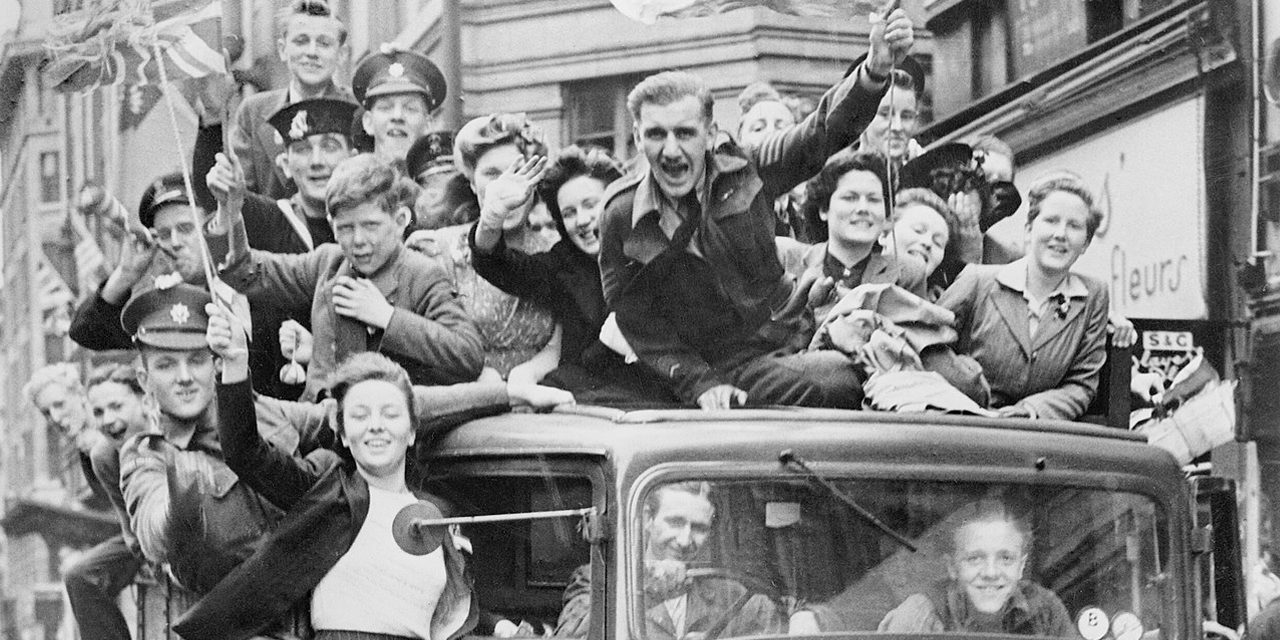On May 7, 1945, the remnants of the Nazi leadership offered their unconditional surrender to the Allied Forces at 2:41am, which brought to an end almost six years of brutal combat on the European continent and the mass murder of the Jews in the Holocaust.
As U.K. Prime Minister Winston Churchill said, “The evil doers…are now prostrate before us. We may now allow ourselves a brief period of rejoicing.”
It was Nazi General Alfred Jodl, who was later executed in the Nuremburg Trials, who signed the unconditional “Act of Military Surrender” to then General and later U.S. President Dwight D. Eisenhower, who acted as the Supreme Commander of the Allied Forces.
In his book Crusade in Europe, Eisenhower recalls the German surrender: “After the necessary papers had been signed by General Jodl and General Smith, with the French and Russian representatives signing as witnesses, General Jodl was brought to my office. I asked him through the interpreter if he thoroughly understood all provisions of the document he had signed.
“He answered, ‘Ja.’
“I said, ‘You will, officially and personally, be held responsible if the terms of this surrender are violated, including its provisions for German commanders to appear in Berlin at the moment set by the Russian high command to accomplish formal surrender to the government. That is all.’
“He saluted and left.”
With that it was officially over. Though Europe and the rest of the world would never be the same.
The Holocaust, the intentional and systematic extermination of the Jews by the Nazi regime through concentration camps, death camps and the Einsatzgruppen, had devastated communities and families, with a total of roughly six million dead.
When Eisenhower visited the concentration camp Buchenwald, he wrote, “The things I saw beggar description. The visual evidence and the verbal testimony of starvation, cruelty and bestiality were…overpowering.”
To describe this monstrous act, the term “genocide” was invented by Polish-Jewish lawyer name Raphael Lemin. According to the U.S. Holocaust Memorial Museum, “Lemkin formed the word genocide by combining geno-, from the Greek word for race or tribe, with -cide, from the Latin word for killing.”
Although there were great celebrations throughout Europe, the Second World War wasn’t over yet. The Japanese were still putting up a fierce, though dwindling resistance in Pacific. It would take another couple of months, and two atomic bombs, to finally end the conflict altogether.
The cost of the war itself, on human lives, cities and countries, was immense. Approximately 60 million were killed, which includes 15 million military and 45 million civilian deaths, and cities across multiple continents laid in ruins, especially in Germany and Japan. About 28 million of those deaths were in Europe alone, and there were 552,117 American casualties, with 104,812 killed in action. And though one war ended, the Cold War was just beginning.
But, on May 7, 1945, the world celebrated when good finally triumphed over evil and tyranny.
In a speech to the nation, U.S. President Harry Truman said, “This is a solemn, but glorious hour. I only wish that Franklin D. Roosevelt had lived to this day. General Eisenhower informs me that the forces of Germany have surrendered to the United Nations. The flags of freedom fly all over Europe. Our blows will not cease until the Japanese military and naval forces lay down their arms in unconditional surrender. We can repay the debt which we owe to our God, to our dead and to our children, only by work—by ceaseless devotion to the responsibilities which lie ahead of us. If I could give you a single watchword for the coming months, that word is ‘work, work, and more work.’”
Photo from Wikipedia






